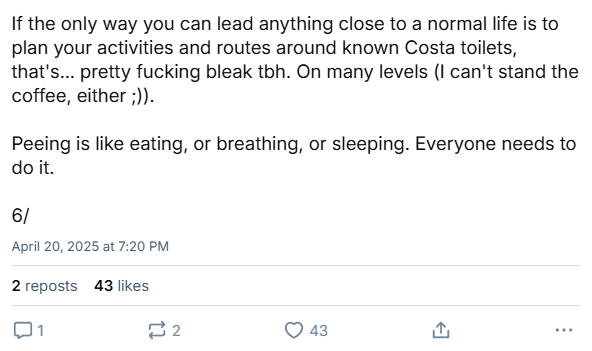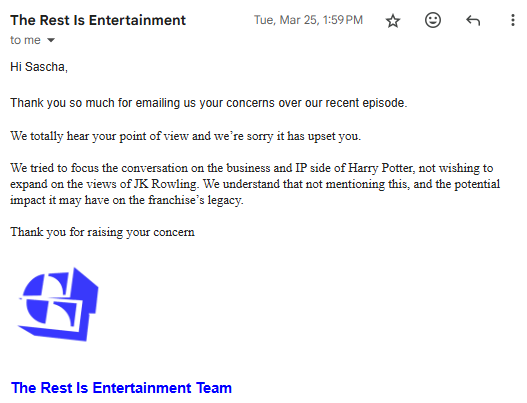Guardians of *what*? Why is the UK media so transphobic?

Why is the media in the UK so stacked against the cause of trans rights? Why do anti-trans or ‘gender-critical’ activists sometimes seem to get so much more coverage of their views than, you know, actual trans people?
The ruling last week by the UK Supreme Court, that the legal status of transgender individuals should be based on their “biological sex” is so regressive and dangerous to trans people that it needs to be fought and scrutinised at every level possible.
Unfortunately the UK media, much like the UK judiciary, seems to have taken an almost unanimous stance against trans people. This is making the lives of already-vulnerable people worse. Why is this seemingly happening just as much in supposedly progressive publications like The Guardian as it is in, for example, The Daily Mail? What harm is it doing to ordinary people? How can we push back?
Pressure to conform
Something that cannot have helped improve the coverage of trans issues in the UK media is that trans people, under pressure to conform to an agenda they don’t think is right, are stepping back from media institutions, feeling either that their presence is not welcome or that they are better served producing their own work, independent of large publishers.
An example of the latter is Grace Robertson, the football journalist who decided to go all-in on the subscription newsletter model, writing over on Substack. Grace is brilliant, and usually steers clear of trans issues on her newsletter, focusing on the football. She still had something to say about this issue in the context of the Stonewall ‘Rainbow Laces’ campaign. She said,
“Some senior sports journalists read this newsletter and compliment my work, but never say a single word when some of their colleagues go all in on attacking trans women. All I’ll say is I see it and notice it every time. I could’ve pursued a career writing about football for the bigger websites and newspapers. One of the reasons I didn’t is that there’s almost no workplace where I’d less want to be an out trans woman than a British newsroom.”

Robertson isn’t the only one who feels things are bad and are getting worse. Former Observer columnist James Wong quit the Guardian’s Sunday sister paper in 2023 after being warned for publicly criticising their coverage of trans issues. Before that, in 2020, around 300 Guardian and Observer staff signed a letter to editor Katharine Viner, leaked to the media, criticising what they saw as increasingly transphobic coverage in the papers.
Trans Media Watch, in its submission to a Parlimentary enquiry in 2024, said that the emphasis on constantly providing new sensationalist content for online media, combined with a gradual "de-skilling" of the newsroom had led to declining standards of journalism.
Lazy journalists are always most likely to interview the people who are easiest to find, and as a general rule "people like people like them." There has been an ongoing fragmentation of the news media, just as social has broken into clusters along algorithmic lines, but this seems to have led to a situation where reporters, looking for comment on a trans-related story and hurried for time, will go first to the press contact of the well-funded ‘gender-critical’ group rather than the pro-trans group, given that the former has almost certainly already reached out to make themselves known and the latter is often scrambling in a struggle to react. One such example of this, cited in Robertson’s post, is Guardian football writer Sean Ingle asking the LGB Alliance, a well-known and amply-financed anti-trans organisation, for comment on LGBTQ+ fan safety at the 2022 World Cup in Qatar.
Meanwhile, fashion and entertainment journalist Hadley Freeman left The Guardian after being refused the chance to interview ‘gender-critical’ celebrities - even if the paper didn’t manage to prevent Freeman making this interview
(link goes to an entertaining Reddit thread, rather than the article itself) with Margaret Atwood - an author who has amplified anti-trans views - all about the topic. Freeman's interviewee, perhaps trying to row back from a controversy she had created for herself, clearly felt uncomfortable.
This post is free. If you find it useful or informative, you're welcome to donate!
Trans activist burnout
It can be hard for trans activists to fight back, and even if they have the wherewithal, they sometimes lack the energy to put out fires when they see a newspaper using a can of petrol. I can say this as someone who volunteers for and donates to a trans-rights organisation, but isn’t by any means in a leadership position; everything you’ve heard about activist burnout is real, and it’s actively encouraged by governments that know if they make life as hard as possible for charitable organisations, it’ll slow their efforts and discourage them that change is possible.
This is what happens when one side of the argument is in survival mode on a lack of funds and sleep, with activists juggling a day job with the work of multiple people and trying to keep up with emails, while the anti-trans group, with almost limitless donations from wealthy people like JK Rowling or any other country's equivalent, may well have its own full-time press officer. Anyone advocating for trans people in the media is taking the proverbial knife to a gunfight, and may even choose to stay out of the coverage given their words would almost certainly be twisted to meet the editorial expectations of the publication.
An increasing media obsession?
Is this really leading to a hardening of press attitudes in the UK? And does this make any difference to public perception of trans people? Professor Peter Baker certainly thought so. In his research on UK media word usage in 2012 compared with 2018/19, Professor Baker found that words associated with trans people increased massively in their frequency in the mainstream media. He goes on to say,
“Approximately half (47%) of references to transphobia in the press raise questions about its validity. This is done in a range of ways – from use of distancing quotes around transphobia, referring to ‘supposed’ or ‘alleged’ transphobia, referring to the way that the accusers behave: e.g. ‘howled down as transphobia’ or simply baldly stating that something is not transphobia.”
This report is five years old, but the playbook it references is being used by even the progressive arm of the mainstream UK media in 2025. Here, for example, is the Observer’s editorial following the UK Supreme Court judgement.
“The reason this was needed is because in practice the balance of rights had been pushed off kilter by campaigners insisting that trans women must be treated as though they are female under equalities law. Right across society, from the NHS, to the police, to prisons, to workplaces: the law has in effect been rewritten by leaders and HR managers in response to activist demands, and in a way that unlawfully discriminates against women.”
The editorial ignores that activism sprang up as a direct result of scaremongering in the UK media, which caused bullying and violence against trans people, and may now lead to a situation where trans people are unable to use a toilet in a public space unless there is a nearby Costa Coffee, as this Bluesky user's post warns (below).

Unchecked false or misleading claims about trans people have led to increased transphobia and to trans people being on a separate legal tier to cis people. Additionally, trans activism has always been seriously underpowered compared to ‘gender-critical’ or TERF (trans-exclusionary radical feminist) activism.
This is especially so given that what the Observer calls the “bravery and resilience of the three grassroots feminists” who set up For Women Scotland, who were behind the Supreme Court appeal, was bankrolled out of Rowling’s pocket. Think of that: trans-rights organisations are in a battle for attention, hearts, and minds against groups that can call upon the proceeds from the money of every gen-alpha kid who goes to the merch store at the Hogwart’s theme park. It’s an unequal fight, and a newspaper that used to stand for the unfairly persecuted now wants to eradicate their rights.
Mainstream gaslighting, centrist silence
Transphobia seems to have become standard practice even in the podcasts set up by new media companies to supposedly break out of the restrictions placed upon journalists by large organisations. Emily Maitlis left the BBC in a time of excessive editorial meddling at Newsnight after Brexit, and created ‘The News Agents’ with two former colleagues.
When Maitlis and her producers decided to circle back to the issue of the closure of The Tavistock gender clinic, which had been the centre of serious allegations for a number of years, she spoke to cis journalist Hannah Barnes, with no trans person invited to contribute to the discussion, or to shed light on why maintaining a gender recognition clinic for children in some form might save young lives (embed below).
Meanwhile, ‘The Rest is Entertainment’, a cosy and frivolous twice-weekly podcast with the seemingly avuncular novelist and TV producer Richard Osman and (yes, that paper again) Guardian journalist Marina Hyde, was invited by a listener to discuss the forthcoming Harry Potter series. Hyde stated she could see no reason why it was not the closest thing we have to a sure thing to succeed. There was no mention of Harry Potter’s LGBTQ+ fans being repelled by Rowling’s public statements and avowed position (below).
the YouTube thumbnail 🙃
— Ariadne Griffin (@ariadnereviews.bsky.social) 2025-03-22T09:02:37.904Z
The podcast even changed the YouTube thumbnail from one asking if Potter was “the greatest franchise”, to a more sceptical one, keeping Osman’s face but removing Hyde’s from the second thumbnail (below).
just seen they've changed it DRAMATICALLY
— Ariadne Griffin (@ariadnereviews.bsky.social) 2025-03-22T09:04:57.960Z
I emailed the podcast team to ask why Rowling’s public perception did not figure in their assessment, and got this reply (below).

It felt like the email had been through more than one pair of hands, based on the unfinished sentence and the multiple fonts. Kind of like one person had written it one way, another person had altered it, and everyone had just forgotten to proofread it.
As it turned out, Hyde, while managing to avoid the trap Freeman set for herself, still showed her true colours with an op-ed about the actually-still-quite-anti-trans Kirsty Coventry’s election as the President of the International Olympic Committee. To Hyde, this was nothing but a betrayal of Lord Coe, who had promised to take a much tougher line on “protecting the female category” (read: excluding trans people from Olympic sports).
The media loves to 'other' people, and though publications like The Guardian and The Observer would argue they reflect society, in reality their attempts to spread panic, and to claim that being anti-trans is just common sense, are destroying trans rights. The media influences people, and the only way out of this cycle of violence against trans people is to amplify trans voices, and demonstrate that we are not a danger, and that we deserve to have rights. If that needs to be outside of the mainstream media, so be it.
We can't debunk every single story - it's draining our energy and it's buying into TERF talking points. What we can do is present trans stories that make clear the falseness of anti-trans narratives. We don't have the money or the political influence of those we're up against, but that doesn't make this an impossible fight.
Contact
Email / Bluesky

Member discussion